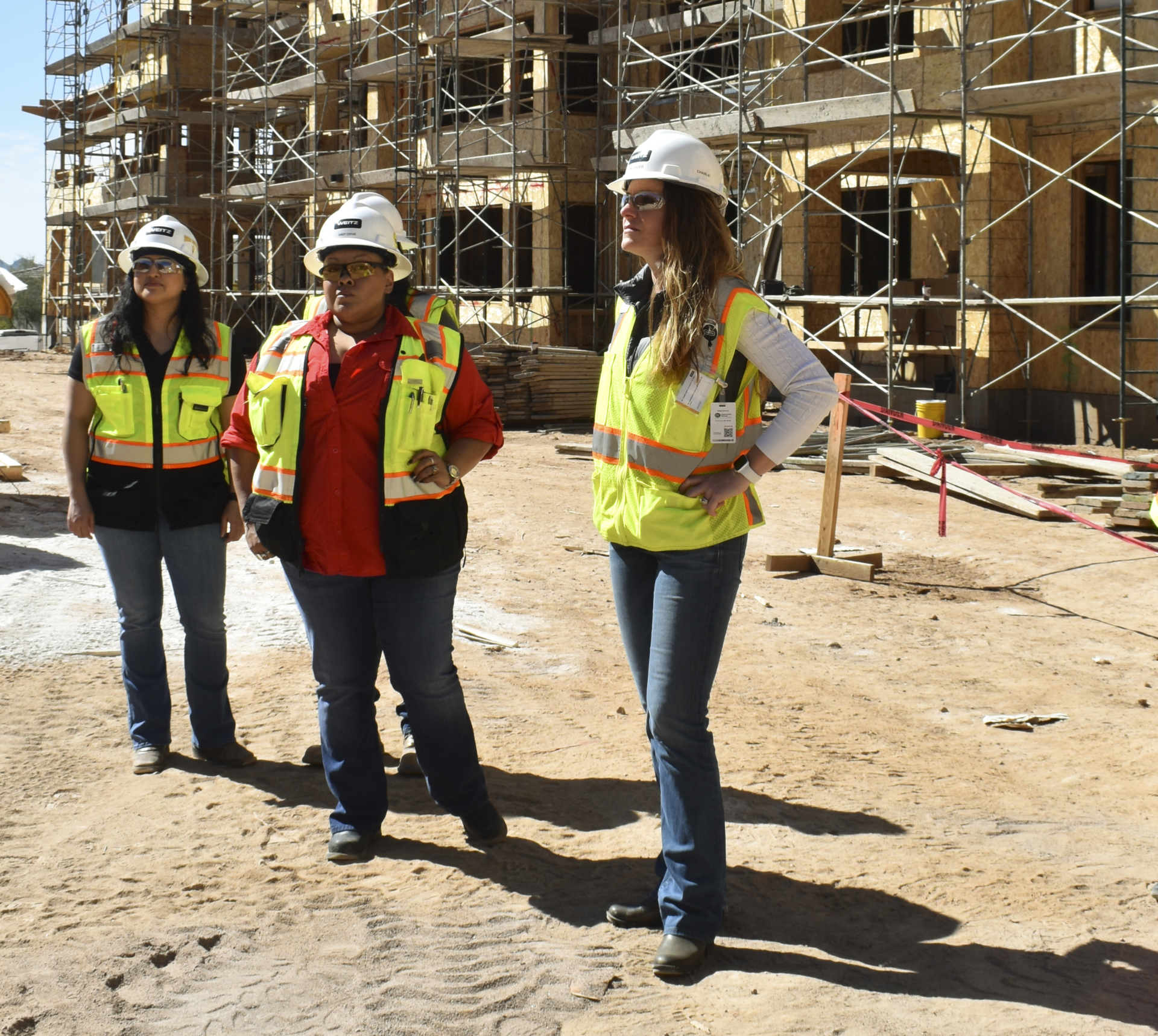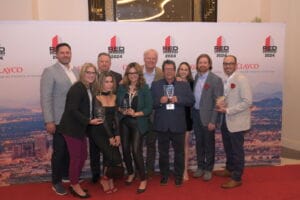The Build Your Future Arizona initiative is designed to educate people about the opportunities available in the skilled trades industry, as well as provide a place to find information on training and available jobs. The goal of BYFAZ is to create a skilled trades workforce who wants construction careers to keep up with the growing demand in Arizona and the rest of the United States.
Women in the skilled trades profession are a vital part of the workforce, but the challenge is to get the attention of young women who may not see themselves fitting into construction careers. In Arizona, the industry is fortunate to have a large contingent of accomplished women in the construction industry who have risen through the ranks and have become executives and built successful construction careers. Three of these women, Kimberly Davids, general manager of Weitz Construction; Michelle Walker, vice president of finance and administration for SSC Underground; and Antonya Williams, senior vice president of business development for the Southwest Region at McCarthy Building Companies; are great examples of the kinds of careers women in construction can create for themselves. These women provided some insight into what challenges they faced coming up through the industry and what are the traits that made them successful.
Kimberly Davids
Q: What are the key traits for success in construction careers?
A: Honesty, integrity and accountability. This industry affords us the opportunity to work with various teams on multiple projects at any given point throughout the year. Each team with its own dynamic and each project with its own opportunities and challenges. The ability to facilitate difficult conversations, internally and externally, is vital to the success of a company. Fostering an environment of open communication where everyone can respectfully speak their mind is key.
Q: What advice would you give women who are just entering the construction industry that want to advance in their careers like you have?
A: Ask questions. Challenge the process. Offer to take on stretch assignments. And most importantly… don’t quit!
Q: What were the biggest challenges for you early in your career and what did you do to overcome those?
A: As I was obtaining my Civil Engineering degree, I couldn’t wait to apply the theoretical curriculum to real world construction projects. Upon starting my career, I found myself unmotivated and discouraged with the mounds of paperwork and documentation (i.e. shop drawings, submittals, etc.) required. I experienced the same frustration during college when I just wanted to build something, but instead I felt stuck behind a desk. One day, I walked into my Project Manager’s office and voiced my concerns.
He immediately started to explain the relevance of the tasks I was asked to perform, the importance of proper documentation, encouraged me to take site walks, and exposed me to financials; all of which made all the difference in my attitude and performance.
I am driven by understanding the “how” and “why” of any given situation, so asking questions and challenging the process was just what I needed to keep me engaged. As I have progressed throughout my career, I have held every position so I can understand the perspective of each member on the team and how they impact the success and culture of a project, and thus the company overall.

Michelle Walker
Q: What advice would you give women who are just entering the construction industry that want to advance in their careers like you have?
A: Have humble confidence — don’t act like you’re out to prove something, but feel comfortable that you have an important role to play. Don’t try to be one of the boys — you’re a woman, in construction — you can be both. If you get treated differently — examine the intent before getting offended. Are they trying to diminish you, or just be gentlemen? 9.9 times out of 10 I’ve found that any sort of different treatment comes from a place of care, not discrimination.
Q: What were the biggest challenges for you early in your career and what did you do to overcome those?
A: 22 years ago, construction in Arizona was very much a “good old boys” network still. More than being a woman in construction, being young was the biggest challenge. While being young in any field even today can create challenges to your credibility, it felt especially so in construction. To overcome both being a woman and young, learning to listen more than speaking was key — learning everything I could and waiting until I had enough knowledge to add value to the conversation/process. I had to learn that nobody likes a know-it-all, especially if they don’t know it all!
Q: What are the key traits for success in this industry?
A: Perseverance — sticking it out when the going gets tough. Faith — knowing that when it looks hopeless, things will get better. Courage — being willing to take risks and do things you’ve never done before. Teamwork — no project can be built by one person or one company or one trade. It takes us all.
Antonya Williams
 Q: What were the biggest challenges for you early in your career and what did you do to overcome those?
Q: What were the biggest challenges for you early in your career and what did you do to overcome those?
A: The biggest challenge I faced as a young project engineer was building confidence. I made a point of communicating this area of development with my manager, and through his support and encouragement, we identified opportunities that allowed me to lead and take on new assignments. I started leading owner meetings, trade partner meetings, and site visits. I took on challenging new assignments that helped me to grow confidence in problem solving. Seeing these challenges through to completion was ultimately what stretched me outside my comfort zone and expanded my leadership potential. I learned that a great manager who is invested in the development of others is key to the success of teams in overcoming obstacles and reaching their full potential and strive to do this with our teams at McCarthy today.
Q: What are the key traits for success in this industry?
A: Early in my career, a vice president and mentor taught me to be a “go-to” person. These are people who everyone trusts. They are reliable to find the best solutions, they show up every day to serve their partners, and they take tasks through to completion – not leaving any loose ends. Throughout my career, these are the types of people I gravitate to. Having an all-in attitude is key to being a “go-to” person no matter your role within the industry.
Q: What advice would you give women who are just entering the construction industry that want to advance in their careers like you have?
A: My first piece of advice is to go for it. Construction is an industry with so much opportunity and it provides an extremely rewarding experience for those who commit to it. My second piece of advice is to be yourself. Having a genuine personal brand will make you stand out and build strong lasting relationships throughout your career. The more you bring your full self to your work, the more success you will have in this industry.




